Drafter-Architectural designer-architect-whats the difference
So we started with a drafter and he didnt seem to have any suggestion on the house plan we had in mind and i guess our personalities didnt match, so we decided to hire someone else.
1. By contract that we signed,out drafter was suppose to have the sets of blueprints, 3D and all the other good stuff, but we never even got to window or roof placement..we just did the floor plan alteration (that he scanned and readjusted)..His fee was $750 upfront and $750 when done...Since we decided not to go forward with him and hire someone else do we still need to pay him the remaining $750?
2. What is the difference between architect and architectural designer..We found an architectural designer we like, but not sure its same as drafter or more like an architect?
Comments (67)
Naf_Naf
11 years agolast modified: 9 years agoDo what? Craigslist? I had no idea that was happening.
Brickeye summarized it perfectly.
virgilcarter
11 years agolast modified: 9 years agoReno8, I think this thread has become so circular that It probably no longer has a direction, and perhaps no new information. The original question has been answered in a variety of ways, all with the same intent and the same information expressed in a variety of ways.
I hope the discussion has been informative and helpful for those looking for information. It's probably time to move on to other issues.
Related Professionals
Ann Arbor Architects & Building Designers · Portage Architects & Building Designers · Mililani Town Design-Build Firms · Arlington Home Builders · Castaic Home Builders · Delano Home Builders · Evans Home Builders · Goodlettsville General Contractors · Dothan General Contractors · Geneva General Contractors · Hayward General Contractors · Northfield General Contractors · Owosso General Contractors · Redan General Contractors · Rohnert Park General Contractorssweet.reverie
11 years agolast modified: 9 years agoReno & Virgil: Do you two have some sort of back history on this forum? :) You seem to always be picking on each other (throw worthy in there too...)
renovator8
11 years agolast modified: 9 years agoBrickeyee did not get it right. By law in the US an architect and an architectural designer are both registered architects.
An unregistered architectural designer is someone who is pretending to be an architect and that should not be recognized as legitimate on this forum.
If the discussion is circular it is because it keeps coming back to a misleading assumption that the members here need to be aware of.
I don't think anyone is picking on me but they seem to have fallen into a common trap: the misuse of a professional title is acceptable if it is common enough.
The members at the Garden Web deserve better information than that.
stinkytiger
11 years agolast modified: 9 years agoHi,
I think that for the average person building a house, the practical on the ground important point, is what the local building inspector will accept. In general this means a state licensed person which can stamp a set of plans to say that the house will not fall down.
The level of technical expertise varies with architects. From the extraordinary, e.g. Santiago Calatrava to others like Frank Lloyd Wright. Note however all the great architects, including FLW, had a understanding of roghtly where the limits of the engineering were. FLW would often push the limits to beyond what was possible at the time. His buildings were beautiful, but even the J&J headquarters had a leakly roof due to the glass rod water proofing, and Falling Water had sagging balconys.
Often on the really complex projects civil engineering firms are hired. Even then things can go spectacularly wrong. One example is the Citibank HQ in New York. The building was up, but it was only then that an architectural student pointed out that if the wind blew from a 45 degree direction, the building would start to oscilate. Wind loading had only be considered head on, the thinking had been that a head on wind would be the most stressful. This is true. But the dynamics of a 45 dgree wind causes dynamic turbulence in the form of spiral vortexs which can oscilate the building. In the end alot more structural steel had to be put in to make the building safe.
Best, Mike.
virgilcarter
11 years agolast modified: 9 years agoSweet.reverie, I have no back history with anyone here, and I respect Reno8's comments and postings, which I find to be informative and based on sound experience. His comments, as with all of the comments here, deserve careful consideration.
My apologies if I gave an impression of disagreement or disrespect. Certainly not my intent.
renovator8
11 years agolast modified: 9 years agoHere is an example from CraigsList of the illegal use use of restricted professional titles. I don't care who uses this service but they deserve to know up front that the advertiser is illegally suggesting that he has the same capacity as an architect when he does not.
Category: Architectural Design (Wheelwright, MA)
Date: 2012-10-17, 10:43AM EDT
hvtqn-3345057985@serv.craigslist.orgSuperb Architectural Design
Ware River Architectural Design is a full service architectural design studio located in Hardwick, MA. We have served the Central New England area since 1996.
We offer premium quality architectural, structural, site plan and subdivision design, and planning and engineering services to clients throughout Massachusetts and Southern New England.
Our pricing structure is competitive and calculated by the square foot of designed space. Our value-added plans packages include all other necessary construction documents required for permits as well as a complete bill of materials and labor costs sheet. This allows our clients the ability to accurately budget their project from design to completion.
We also provide project management, project cost estimating and permit acquisition assistance and public meeting attendance for both residential and light commercial projects.
Feel free to contact us today!
Learn more about my service
image
Daniel Damon
Wheelwright, MA 01094Ware River Architectural Design
Here is a link that might be useful: the firm's web site
renovator8
11 years agolast modified: 9 years agoI take no offense from Virgil's comments but both hollysprings and Greendesigns, who should know better, gave careful descriptions of the services an unregistered "architectural designer" might offer a homeowner without mentioning that the use of that title is deceptive and illegal.
This casual attitude potentially exposes homeowners to fraudulent designers and after 40 years of representing the interests of clients I find it very troubling.
The number of fake architects on the internet is staggering. There is a guy who hangs out near the plans examiner's counter at the Boston Building Dept who pretends to be an architect and uses a false address.
All we can do is alert the members here to be suspicious of terms like "architectural designer" and to be prepared to verify someone's professional credentials.
renovator8
11 years agolast modified: 9 years agoI was the victim of a fraudulent "architect" and still worry that any damages caused by that person's incompetence might still cause me harm.
The guy I described earlier as hanging around the building department had provided design drawings for he renovation of a 3 family house in Boston. Because I was designing a very expensive kitchen renovation for the developer I was asked to modify and stamp the design drawings because the building department did not think the design was adequate and it had been stamped by an engineer who had been retired for 20 years.
What first puzzled me was that the building was drawn smaller than it actually was and the floor to floor heights were off by as much as a foot per floor. I became suspicious of such an obvious error and calculated the volume of the building as originally drawn and found that it was just under the 35,000 cu ft that triggers design and "Construction Control" by an architect which involves design, site supervision and certification of compliance by an architect.
The developer and contractor had knowingly allowed an "unregistered architectural designer" (calling himself xxxx Architectural Design & Construction Co. with no address or phone number) to design the building in order to avoid using a licensed architect and providing professional "Construction Control" of the project. I had stumbled into this fraud and if I stamped the drawings I would be perpetuating the fraud and could lose my license. On the other hand if I exposed the fraud I would lose a client and the fee I had already earned but more importantly the final building design might endanger the safety of future residents. We're talking about 4 stories of rear decks with an egress stairway in it.
I had an engineer design the structure properly and then after searching for hours on the internet I found the retired engineer and got him to stamp the drawings for free telling him I worked for the original designer (whom he fondly referred to as his young protege). He was a very considerate man who was unfortunately completely senile. He stamped and signed the drawings with the help of his wife without looking at them on the trunk of his car because he was leaving for the cape.
The project was not supervised by an architect but I stopped by when the structural work was complete wearing a well worn hard hat from the 60's and advised them that if they did not install the connectors as specified they would not get a C of O and that I was happy to wait while they did it. It didn't take long.
An owner can't ask for greater loyalty than that but I'll never do it again. When the contractor asked me to show imaginary existing framing members on the permit drawings I resigned from the kitchen project. I will never work for a developer or contractor again nor will I tolerate the fraudulent use of professional titles.
renovator8
11 years agolast modified: 9 years agoAn architect has a legal obligation to inform the building department of any building code violations or unsafe practices and has a legal obligation to inform the registration board of any violation of professional standards and rules.
If the fraud were to be exposed, the developer and contractor could claim they thought the designer was an architect and the evidence is right on the drawings.
The designer could claim that since he has no professional training he did not know he was prohibited from using "architectural" in his firm name. He might have to pay a few hundred dollars in fines.
However, if an architect becomes involved in any way he/she could be put on probation or lose their license.
renovator8
11 years agolast modified: 9 years agoYou're not picky; I sent him an email and here is his response:
"The company name is ware River Architectural Design and we have several AIA certified architects we work with for stamp and review services on a per project basis. so that should answer your question, should you have nothing better to do and wish to file a complaint my contact info is below.
Good day,
Daniel C. Damon
Ware River Architectural Design
1926 Barre Road
Wheelwright, MA 01094
774-757-7602
www.wareriverplans.com"I responded telling him at least one of the principals of his firm must be a licensed architect to offer the services on his web site. Hiring a consultant to stamp his drawings is illegal for his firm and the architect he hires. If the architect does all of the drawings he/she must be the person offering architectural design services.
I may file a complaint. He seems to be daring me to do it.
virgilcarter
11 years agolast modified: 9 years agoFWIW, the AIA is a voluntary membership organization and does not "certify" anyone. In the U.S., states license architects. There is no such thing in the U.S. as a "certified" or a "registered" architect--only an architect "licensed" in the state of XXX, YYY.
State Architectural-Engineering laws may differ, but in general they require drawings to be prepared by, or under the direct supervision of a licensed architect.
Hope this helps.
Naf_Naf
11 years agolast modified: 9 years agoAIA is a "voluntary" membership organization?
What do you mean by voluntary?worthy
11 years agolast modified: 9 years agoLike the (American Medical Association) AMA.
Of course, Danny Boy might avoid the whole hassle of p.oed architect's complaints by joining the AIBD (American Institute of Building Design)and advertising himself as a "building designer". Still, that appellation lacks a certain ring.
Further on this topic, see "Trust Me. I'm an (Unlicensed) Architect"
http://www.architectmagazine.com/legal-issues/trust-me-im-an-unlicensed-architect.aspx
Sorry, about the cut 'n paste. But GW doesn't handle aspx files.
renovator8
11 years agolast modified: 9 years agoThere really isn't any difference between a "registered" architect and a "licensed" architect". Some states prefer one term to the other and many both terms.
In Massachusetts I am issued a card that says "Division of Professional Licensure - Board of Architects as a Registered Architect - issues the above License to ....." At the bottom there is a "License No."
So, in MA I am licensed as a registered architect. My stamp says I am a "Registered Architect". On at least one local building permit form it asks for my Registration Number.
In Maine I am "licensed as an Architect" and issued a "License Number".
In California an architect must use the term "licensed" on a stamp.
It is easy for Ware River Architectural Design to get around the requirement that drawings be prepared under the supervision of an architect by associating with an architect for a project but it is more difficult to get around the requirement that at least one principal of your firm must be an architect in order to use the title "Architectural Design" in your firm name. In many states all of the principals of the firm must be architects.
virgilcarter
11 years agolast modified: 9 years agonaf_naf: The AIA is a "voluntary" membership organization since it is not mandatory to join.
Those who join do so voluntarily and may use AIA after their name if they are a licensed architect and a member in good standing.
Non-licensed individuals, on licensure track, may join and use the title, Associate, AIA. The NCARB calls these folks "Intern-Architects", designated years ago after the medical profession.
FAIA (Fellow, The American Institute of Architects) is the AIA's highest recognition for individuals who are licensed architects and distinguish themselves in a variety of areas of the architectural field, and may also be used after one's name.
Thanks, Reno8--I hadn't heard about the MA language about "registered" architects. My base state was California. Sounds like different wording in the state's A-E act.
Naf_Naf
11 years agolast modified: 9 years agoI was a bit lost with the use of the word - I guess I was almost asleep.
I am very familiar with the AIA. I am a the local section vicepresident.
AIA is like Reno describe it a while ago: Some sort of a Club.renovator8
11 years agolast modified: 9 years agoOne of the definitions of a profession is that it is self-regulated by a member run professional organization and for the architectural profession it is the AIA but it is not really a club. You pay dues but you must satisfy continuing education requirements to remain a member. More recently states have the same requirement so most architects must meet those requirements in order to stay licensed.
An Intern Architect must be in the Intern Development Program (IDP) and can automatically become an Associate AIA member but so can an architecture faculty member, someone who works under the supervision of an architect and anyone who has a degree in architecture even if they are not in the IDP.
brickeyee
11 years agolast modified: 9 years agoBy law in the US an architect and an architectural designer are both registered architects. "
You checked the statutes of every state and sub-municipality that issues licenses?
That is usually a daunting tasks that usually takes a lot of time and money for data base accesses and searches.
Congratulations.
renovator8
11 years agolast modified: 9 years agoThe 50 states, the District of Columbia, Guam, Puerto Rico, and the U.S. Virgin Islands issue architectural licenses and they are all members of the National Council of Architectural Registration Boards (NCARB) that writes and administers all of the license/registration exams. NCARB publishes standards but the members write their own laws.
NCARB's model architectural practice statute is becoming increasingly accepted making the laws more uniform. NCARB's model statute prohibits unlicensed persons "directly or indirectly engaging in the practice of architecture, from using the title of ‘architect,’ ‘registered architect,’ or ‘architectural designer,’ and from using ‘any words, letters, figures, titles, sign, card, advertisements, or other symbol or device indicating or tending to indicate that such person is an architect or is practicing architecture." This wording is intended to prohibits the use by unlicensed designers of "derivative" titles" that is becoming commonplace on on the internet and in promotional brochures.
I have been an active user of the services of NCARB for 40 years which allows me to become licensed in any state by filing a request and paying a fee. There is nothing they don't know about the practice of architecture in this hemisphere.
Yes, I have the architectural licensing statutes for all 50 states but I haven't taken the time to get the ones from the non-states.
What would you like to know?
renovator8
11 years agolast modified: 9 years agoThe use of the title “Architectural Designer” and similar titles derived from the words "architect" and "architecture" is restricted to licensed architects in all 50 states by the following legal prohibitions for unlicensed designers:
MASSACHUSETTS
Prohibition of the use of the title “Architectural Designer” or the display or use any words, letters, figures, title, sign, card, advertisement or other device to indicate that someone offers to engage or engages in the practice of architecture.OKLAHOMA
Prohibition of the use of the title “Architectural Designer” or the display or use any words, letters, figures, titles, signs, cards, advertisements or other symbols or devices indicating or tending to indicate that someone is an architect.LOUISIANA
Prohibition of the use of the title “Architectural Designer” or the use of Architectural Draftsman, Architectural Building Designer, Architecture and Architectural or anything confusingly similar.WEST VIRGINIA
Prohibition of the use of the title “Architectural Designer” or the display any words, letters, figures, titles, sign, card, advertisement or other symbol or device indicating that someone is an architect.IOWA
Prohibition of the use of the title “Architectural Designer” or to imply that a person is an architect.WISCONSIN
Prohibition of the use of the title “Architectural Designer” or any other titles that include the terms “architect” or “architectural”.MISSOURI
Prohibition of the use of the terms “architect”, “architecture” or “architectural” alone or together with any words that indicate or imply that a person is an architect.VIRGINIA
Prohibition of advertising or promotion using the word “architecture” in a manner that indicates or implies someone is an architect.TENNESSEE
Prohibition of the use of the appellation “architect, an appellation which compounds, modifies or qualifies the word “architecture”, or which gives or is designed to give the impression that the person using same is an architect.NEVADA
Prohibition of the practice of architecture or use of the title “Architect” without an appropriate certificate of registration and the practice of residential design or the use of the title “Residential Designer” without an appropriate certificate of registration.ILLINOIS
Prohibition of the use of the title “architect” or any of its derivations. OR advertising or displaying any sign or card or other device that might indicate to the public that the person or entity is entitled to practice as an architect or use the title “architect” or any of its derivations.CALIFORNIA
Prohibition of advertising or promoting through the use of the word “architecture,” in a manner that indicates or implies that someone practices or offers to practice architecture.
Examples of recent enforcement:
$2,500 civil penalty for a web site advertising “architectural design services.”
$1,000 civil penalty for plans for a residence with “Almost Architecture” on title block.VERMONT
Prohibition of use in connection with a person’s name any letters, words, title or insignia indicating or implying that someone is an architect.ARKANSAS
Prohibition of the use of the designation “architect” or any term derived therefrom.OREGON
Prohibition of the use of any title, sign, cards or device indicating, or tending to indicate that someone is an architect OR the use of words, title or insignia indicating or implying that someone is an architect.RHODE ISLAND
Prohibition of use of any title, sign, card, or device implying OR the use of any title or description conveying or tending to convey the impression OR the use of any words, letters, figures, seals, or advertisements indicating or implying that someone is an architect.NORTH DAKOTA
Prohibition of use of any term, title, or description or engaging in any other conduct that reasonably might be expected to mislead another to believe that someone is an architect, OR any variation of those terms, or any other words, letters, or device to indicate that someone is an architect.SOUTH DAKOTA
Prohibition of advertising any title or description that may falsely convey the impression that someone is an architect.IDAHO
Prohibition of putting forth any card, sign, or other device which would lead the public to believe that someone is an architect.MARYLAND
Prohibition of use of the term “architecture” by description of services, methods, or procedures, or otherwise that someone is an architect.MINNESOTA
Prohibition of use in connection with a person’s name or to otherwise assume, use or advertise any title or description tending to convey the impression that someone is an architect. The title “Architectural Intern” or “Intern Architect” is not allowed.HAWAII
Prohibition of the use of any letters, words, title, sign, card or device to indicate that someone is an architect.KENTUCKY
Prohibition of the use of any words or letters or assume any titles or descriptions tending to convey the impression that someone is an architect.COLORADO
Prohibition of the improper use of the title “Architect” or the word “architect”.WASHINGTON
Prohibition of representing through offerings, advertisements, or use of a professional title or designation that a person is an architect.INDIANA
Prohibition of the advertising or putting out of any sign or card or other device which might indicate to the public that a person is entitled to practice as an architect.NEW HAMPSHIRE
Prohibition of representing by verbal claim, sign, letterhead, card, or in any other way that someone is an architect.ALASKA
Prohibition of the use in connection with a person’s name or otherwise assume or advertise a title or description tending to convey the impression that a person is an architect. OR through the use of other titles implies that a person is an architect.ARIZONA
Prohibition of advertising or displaying any card, sign or other device that may indicate that a person is an architect.MONTANA
Prohibition of the use of any words, letters, figures, or other device indicating that a person is an architect.NEW MEXICO
Prohibition of the use of the terms “architect” or “architectural services” or any designation tending to imply that a person is an architect.UTAH
Prohibition of the use the title “Architect” or any other words, letters, or abbreviations indicating that a person is an architect.TEXAS
Prohibition of the use any form of the word “architect” or the word “architecture” to describe a person or a business associationKANSAS
Prohibition of the use of any title or description intended to convey the impression that a person is an architect or through the use of other titles implies the same.NEBRASKA
Prohibition of the use in connection with a person’s name or otherwise assume the title of architect or advertise an title or description tending to convey the impression the person is an architect.MICHIGAN
Prohibition of the use of the title “architect” by the Occupational Code. Those who design detached 1&2 family houses must use the title “Residential Building Designer” instead of a title derived from the title “architect” or “architecture”.FLORIDA
Prohibition of the use of any form of the word “architect” or “architecture” in a name or to describe services offered.OHIO
Prohibition against providing architectural services or to hold oneself out to the public as providing architectural services or use the name including the word “architect” or a modification or derivation of the word.MAINE
Prohibition of displaying or using any words, letters, letters, figures, titles, sign, card advertisement or other symbol or device indicating or tending to indicate that someone is an architect.NEW YORK
Prohibition of using in connection with a person’s name, or otherwise assume, use or advertise any title or description intending to convey the impression that the person is an architect.NEW JERSEY
Prohibition of the use of the title “architect” or the term “architectural services”, or the substantial equivalent thereof. Acceptable titles for unlicensed persons in NJ are “space planning”, “interior design”, “interior design service” or the substantial equivalent thereof.DELAWARE
Prohibition of the use in connection with the person's name, or otherwise assume, use or advertise any title or description intending to convey the impression that the person is an architect.PENNSYLVANIA
Prohibition of the use any sign, card or device implying that such individual is an architect, or is competent to engage in the practice of architecture.SOUTH CAROLINA
Prohibition of the use or display any title, sign, word, card, advertisement, or other device or method to indicate that the individual or firm engages in or offers to engage in the practice of architecture or is an architect.NORTH CAROLINA
Prohibition of the use of the title "Architect" or any form thereof, or to display or use any words, letters, figures, titles, sign, card, advertisement, or other device to indicate that such individual or firm practices or offers to practice architecture.MISSISSIPPI
Prohibition of advertising or putting out any sign or card or other device which might indicate to the public that the person is entitled to practice as an architect.GEORGIA
Prohibition of the use of any word, letter, figure, or any other device indicating or intending to imply that someone is an architect.WYOMING
Prohibition of using any title, sign, card or device to indicate that a person is practicing architecture or is an architect.CONNECTICUT
Prohibition of display or use of any words, letters, figures, title, sign, seal, advertisement or other device to indicate that a person practices or offers to practice architecture.ALABAMA
Prohibition of representing by use of a verbal claim, sign, advertisement, letterhead, card or any other way that a person is an architect with or without qualifying adjective, or when he or she implies that he or she is an architect through the use of some other title.renovator8
11 years agolast modified: 9 years agoThey're all there. It's annoying that the forum can't read punctuation from a word processor. 3rd rate software.
renovator8
11 years agolast modified: 9 years agoI hid Virginia between 2 other states just to annoy brickeyee.
I hope this will end the silly arguments about what designer titles are legal in this country.
The most specific law is from British Columbia. It says the same thing as the ones above but it spells it out for those too dense to understand the US laws.
BRITISH COLUMBIA
For an individual who is not registered as a member, (i.e., who is not an architect) or for a business that does not hold an AIBC Certificate of Practice, the use of the following descriptive terms and variations is NOT ACCEPTABLE:
- "ARCHITECT";
- "GRADUATE ARCHITECT";
- "ARCHITECTURAL DESIGN(ER)";
- "ARCHITECTURAL DRAFTSMAN" or "ARCHITECTURAL DRAFTSPERSON";
- "ARCHITECTURAL SERVICES";
- "DESIGN ARCHITECT";
- "PROJECT ARCHITECT"
- "RESEARCH ARCHITECT";
- "INTERIOR ARCHITECT";
- "ARCHITECTURAL REPRESENTATIVE";
- "ARCHITECTURAL CONSULTANT";
- "ARCHITECTURAL TECHNICIAN";
- "ARCHITECTURAL TECHNOLOGIST" (unless so registered as an associate with the AIBC);
- "INTERN ARCHITECT" or "ARCHITECT-IN-TRAINING" (unless so
registered as an associate with the AIBC); and
- "ARCHI-" (prefix when used in a building design/construction context such as
"ARCHITECTONIC", etc.).In other words leave the architectural profession alone and find you own titles.
Alex House
11 years agolast modified: 9 years agoSimilarly, North Carolina went after a blogger who was writing about nutrition on his blog and sought to convict him and incarcerate him. His crime? He as offering nutrition advice to the public and was not a licensed nutritionist in the State of North Carolina. Nutritionist were using the power of government to protect their own livelihood.
Interior designers are trying to get the same protection of the law. Hair Stylists are doing the same. Any group with deep enough pockets can spend money to get lawmakers to pass these rent-seeking legal protections.
Were Michaelangelo and Bramante, you know, the fellows who designed St. Peters licensed architects or where they Designers or Design builders? The point here is that architecture describes a process and this process predates states licensing, so to preclude from participation those who engage in the process but are not licensed clearly indicates that one set of people have co-opted this history and have found ways to have government be their enforcer.
Ralph Lauren's Polo brand did the same. Polo and polo players existed long before Lauren graced the Earth with his presence but now anyone who tries to use the term polo in order to invoke associations with polo the game or the culture of polo players is in violation of Lauren's trademark.
The argument with restricting the use of the term architecture would be more clear cut if the term wasn't hijacked by one group of people in the broad architecture profession and instead of claiming this historical term for their own use they had devised a new term to describe the particulars of their profession and then sought to protect that term. Inventing something and wanting to protect it is quite a bit different from misappropriating something and then claiming that its yours.
virgilcarter
11 years agolast modified: 9 years agoAlexHouse, you raise a great point. Let's return, as quickly as possible, to those historical times when physicians used leeches to practice medicine! After all, if it was good enough hundreds of years ago, it should be just fine now, right?
And how about the practice in London, after the Black Plague, when the wagons would come down the street, with drivers calling out, "Throw out your dead!" Let's just continue that as well, don't you think?
Why would any of us want to advance on the basis of greater knowledge and experience over time?
Speaking of architecture, the only major domed catherdrals left standing in Europe are just those that didn't collapse! So why don't we just keep throwing up structures and see which ones last and which ones don't?
History is such a good teacher: but one has to heed the lessons of history.
By the way, who is the "group of people in the broad architectural profession" who hijacked anything? Just curious.
Alex House
11 years agolast modified: 9 years agoBy the way, who is the "group of people in the broad architectural profession" who hijacked anything? Just curious.
Were Bramante and Michealangelo licensed by the state so that they could practice architecture or did architecture not exist before state licensing?
If having a state license is a necessary condition to using the terms architect and its derivatives, then who designed St. Peter's? Were there no architects involved? Is St. Peter's not an example of architecture? Was architecture not practiced throughout history and only began to be practiced when states got around to licensing those who perform the service?
Architecture existed long before there were accreditation practices for architects, it existed long before one group of architects twisted government in order to create a restraint of trade which protected them from competition and prohibited their competitors from using the term that naturally applied to their work for millenia, it existed and was practiced with varying levels of skill and design panache long before schools of architecture sought to codify and teach, etc.
Architecture has always been understood as a broad umbrella term to describe planning and designing of buildings. No one understood architecture to mean a practice conducted only by those who are licensed by a state to conduct an activity. Architects have appropriated the name and rich history of this activity and reserved it for themselves.
Don't feel bad though, rent-seeking is prevalent in society.
renovator8
11 years agolast modified: 9 years agoAlexHouse sets the bench mark for ridiculous off-the-wall commentary and observations here at the GardenWeb. It's best to just ignore him but I did enjoy the reference to polo players. He may need a new tinfoil hat.
Alex House
11 years agolast modified: 9 years agoYou liked the reference to polo, huh? Here's more:
But according to the USPA, the legal donnybrook with Lauren hasn't reached its end game. Several recent cases were adjudicated in Polo Ralph Lauren's favor. The USPA counter-sued last summer. That litigation is still pending, said Michael Sommer, an attorney for Jordache and the USPA in New York.The association is outraged that Lauren, a "non-rider" in business since 1967, would sue for rights to the name of a sport that's been around 1,000 years. USPA Properties is the official licenser for the USPA, and Jordache has a polo brand of its own: a USPA line of designs. . . . .
The judgment of the court was that Polo Ralph Lauren owned the name of the sport for commercial purposes.
Hey, while polo has been played for a 1,000 years before Ralph Lauren came up with the idea of appropriating the name and image of the sport to sell his clothes, architecture has been practiced for far longer and there was never any requirement that those who were engaged in the design of homes and other buildings be licensed by the state. Why, it's almost like Lauren and architects are using the power of government to enrich themselves by restricting trade.
Now don't get me wrong, I believe that architects add positive value to many design situations and this value can't be duplicated by a draftsman or designer but that isn't the issue here and with this legislation for what we see going on here is a appropriation of a term that has long history in language and culture and its restriction to a small group of people through the co-option of government.
Look at that BC legislation - restrictions on the use of - "PROJECT ARCHITECT" and "RESEARCH ARCHITECT" terms that are commonly used in software design. Both reference the etymology of architect which predated state licensure.
Oh, btw, who were the architects of St. Peter's and who licensed them?
renovator8
11 years agolast modified: 9 years agoYou are terribly confused about the history of architectural design. In the times you mention buildings were built by wealthy families, governments and the church. Those entities chose who would be allowed to design and build their buildings often as patrons. A designer would work for half a lifetime usually starting as an apprentice as Michelangelo and Palladio did. If they were very good they gained the reputation necessary to be hired to design the relatively few projects available.
Times have changed. There are a lot more buildings and more are being built everyday. These buildings, if not regulated, would be dangerous to their inhabitants and the environment. Legislatures in every state have seen fit to regulate those who design these buildings safely and for some reason you feel they don't deserve to be known as architects, what, because software designers come along and want to use that name? Who has a greater right to use the name given to Michelangelo and Palladio? CAD draftsmen after taking an online course? The reason professional titles like doctor, lawyer, architect and engineer are restricted is that they are no longer hired by the wealthy and powerful but by ordinary people who can easily be taken advantage of. They need a way to distinguish between trained and untrained designers and those who continue to learn and who must meet professional standards to keep their title.
But you must know all of this - you only want to throw out specious arguments to antagonize people and derail forum threads. The name for that on the internet is a "troll".
Alex House
11 years agolast modified: 9 years agoSo you concede that architecture exited prior to state licensing, you concede that the hiring of architects was between the architect and patron and that there was no governing or regulating body interfering in this arrangement.
OK.
Now with that out of the way let's move forward.
These buildings, if not regulated, would be dangerous to their inhabitants and the environment.
A house designed by a non-architect, say a draftsman or home designer, is dangerous to inhabitants and the environment? Only an architect can design a safe home?
Legislatures in every state have seen fit to regulate those who design these buildings safely and for some reason you feel they don't deserve to be known as architects,
Legislatures are known to do the bidding of many private interests. For instance: In 22 states, including Arkansas, it is illegal to call yourself an interior designer without going through an arduous and expensive certification process. In Nevada, it's illegal to do interior design without a license. That's right, advising someone about drapes could land you in the hoosegow.
Like many states, Arkansas has an Interior Design Board. The sole purpose of this board is to register interior designers.
. . and for some reason you feel they don't deserve to be known as architects
Before the term got misappropriated by contemporary architects, everyone involved in the process of planning and designing a building had a right to claim that they were involved in the process of architecture. Today, home designers are still practicing architecture, that is, they're planning and designing homes. They're doing what people have been doing for thousands of years. What architects have done is they've convinced government to grant them the exclusive right to a name and a process and to exclude others who are doing the same work from referring to that work as it's always been known.
How could architects have existed without state licensing? If they existed back then and the same work is being done today, then designers who are not licensed as architects are still doing architectural work.
If you guys had come up with a name like "building design and construction maestro" to describe your specialized subset of work in the field of architecture and usurpers who didn't have your training were trying to hijack your profession's name, then you'd have a pretty strong case to protect your name.
Look, the vintners of Champagne are doing the same thing as you. People have been making Champagne for a long time but now only growers within the Champagne region of France are entitled to call their product Champagne and everyone else must use the term sparkling wine. Amazing what the lobbying of government can do to aid in the misappropriation of a useful name, huh?
They need a way to distinguish between trained and untrained designers and those who continue to learn and who must meet professional standards to keep their title.
Absolutely agree. I have no problem with licensing, it's the zealotry in defense of a misappropriated title - a home designer is engaged in the practice of architecture when he is designing a home, plain and simple. Your profession can still distinguish itself from the riff-raff by claiming to be licensed architects, which is a statement of fact, and the important aspect here for the general public is the licensing, which is, after all, the whole point about professional standards. Come down like a ton of bricks on people who claim to be licensed but are not.
But you must know all of this - you only want to throw out specious arguments to antagonize people and derail forum threads.
Arguments you don't like are not specious by definition. My point here is to highlight the atrocity of rent-seeking and misappropriation of common concepts for private gain.
If architecture arose when there were fewer standards, then shouldn't the logical way forward for a sub-group of architects who adhere to higher standards be to devise a new way to refer to themselves rather than trying to ban everyone else from referring to themselves and what they do as has been common practice for centuries?
Alex House
11 years agolast modified: 9 years agoThe Wall Street Journal reports from Florida:
Interior designers may seem to inhabit a genial world of pastel palettes and floral motifs. But right now in this state, their industry is locked in an indecorous pillow fight over who has the right to design. . . .The thought of "someone in my position that thinks they know what they're doing because they watched HGTV for two weeks scares me," licensed interior designer Terra Sherlock said at a hearing in March.
Another licensed designer, Michelle Earley, argued that use of the wrong fabrics in hospitals could spread infection. By deregulating, she told lawmakers, "what you're basically doing is contributing to 88,000 deaths every year," citing a study by the Centers for Disease Control and Prevention on deaths from hospital-acquired infections. . . .
Supporters of deregulation say these claims are little more than scare tactics. Licensed designers want one thing, says Clark Neily, senior attorney at the Institute for Justice, a libertarian law firm: To choke off competition from upstart designers who lack degrees. "I've never seen a more concerted and virulent cartelization effort," says Mr. Neily.
Similar tussles have broken out elsewhere, but Florida, which is considered by many in the industry to have the most strictly enforced licensing law in the country, is ground zero. A host of national interest groups have descended on Tallahassee, including the pro-licensing American Society of Interior Designers and the anti-licensing National Kitchen and Bath Association. Among the auctioneers, travel agents and telemarketers who are also in town lobbying to keep their professions regulated, designers have made the biggest ruckus. . . . .
The safety argument is all part of ASID's "full-scale assault on design freedom," says Patti Morrow of the Interior Design Protection Council, which opposes licensing requirements. Every year, ASID pushes a bevy of bills that would regulate interior design in some way, she says. "I have about 20 on my desk so far this year."
Even so, some argue that enforcement in Florida can be over zealous. Anyone caught practicing without a license can face fines and up to a year in jail.
Nancy Stehle, a designer from New Jersey who relocated to Fort Myers and lacks a license, found herself in the cross hairs of the state's Board of Architecture and Interior Design in 2008. She received a cease-and-desist letter from the enforcement agency for calling herself a designer in an ad in the Yellow Pages.
"I had never even had so much as a traffic ticket," she says. The letter instructed her to pull the ad and sign an affidavit saying she wouldn't call herself an interior designer or face disciplinary action and a $5,000 fine.
If deregulation succeeds, she hopes to return to the commercial work she used to do in New Jersey. "The licensed people are concerned about competition," she says. "My feeling is, if you're good at what you do, you never have to be concerned."
renovator8
11 years agolast modified: 9 years agoThis thread is about the difference between Architects and Architectural Designers not interior designers, nutritionists and others I don't bother to read about.
The issue is not what services people provide but what words they use to convince unsuspecting prospective clients to hire them. Anyone can design a house and call themselves a home designer, residential designer, etc., but if someone uses the title "architect" or any derivative of it, people have the right to assume that person has been trained, has met certain standards of competence, and has not caused harm to previous clients through negligence. You have completely confused the two issues and hijacked the thread for what purpose I can't imagine.
The idea of licensing professions resulted from the general structure of medieval society, which was strictly organized according to status, crafts, trades and professions. Each such vocational group had regulations, standard-setting codes, guaranteeing highly qualified services to society. The way to escape this regulation was to serve in the royal court. Michelangelo, unlike Bramante, was too difficult a person to serve a court and was eventually emancipated from guild regulation by papal intervention. Is this the system you prefer? The the regulation of guilds and the patronage of kings and popes?
The essential rationale and standard for the present day regulation of professions in this country was set forth by the U.S. Supreme Court in Dent v. West Virginia, 129 U.S. 114, 122 (1889), when the Court wrote:
"The power of the State to provide for the general welfare of its people authorizes it to prescribe all such regulations as, in its judgment, will secure or tend to secure them against the consequences of ignorance and incapacity as well as of deception and fraud. As one means to this end it has been the practice of different States, from time immemorial, to exact in many pursuits a certain degree of skill and learning upon which the community may confidently rely, their possession being generally ascertained upon an examination of parties by competent persons, or inferred from a certificate to them in the form of a diploma or license from an institution established for instruction on the subject, scientific and otherwise, with which such pursuits have to deal. The nature and extent of the qualifications required must depend primarily upon the judgment of the State as to their necessity."If you wish to learn from history you must study it instead of creating a fantasy world to further specious arguments.
renovator8
11 years agolast modified: 9 years ago"A house designed by a non-architect, say a draftsman or home designer, is dangerous to inhabitants and the environment? Only an architect can design a safe home?"
There is nothing in any of the licensing regulations of any state that requires the designer of a 1 or 2 family house to be a licensed architect. In fact many states allow anyone to design a 3 or even 4 family dwelling. Architects are required to design buildings used by the public. Residential designers could use the title architect if it was not already taken for he design of larger buildings, a tradition that goes back long before Michelangelo was born.
The book linked below was written by my favorite grad school professor. Read it before making any more uninformed comments about Michelangelo work in mid-16th century Rome. He would not have even been considered if the Pope's first two choices had been available. If you won the approval of powerful people you could escape the normal restrictions and regulations. Fortunately, today you can study and be accepted in a profession through your own efforts. Why would you glorify a system based on indentured servitude and patronage?
Here is a link that might be useful: The Architecture of Michelangelo
virgilcarter
11 years agolast modified: 9 years agoI'm not sure why this discussion has strayed so far from the original question. Is AlexHouse, perhaps, a residential designer or an interior designer (or connected to one) wanting to air years of frustration?
The simple fact is that there is considerable difference between an architect, a designer, and a drafter. The differences have been pointed out in the thread.
History is interesting and informative, but the original poster asked a reasonable question which deserves a reasonable discussion based on actual conditions as they exist today.
If one wants to start a thread on the injustice of licensing professionals by individual states in the U.S., please do so. Or one wishes to bemoan the history of how professions were/are defined and regulated, by all means do so. But don't clog this thread with those frustrations.
Carry on!
renovator8
11 years agolast modified: 9 years agoThe current Boston City Hall was designed by Gerhard Kallmann, a Columbia University professor, and Michael McKinnell, one of his graduate students neither of whom were licensed architects at the time that they won a 256 entry design competition and subsequently formed a firm with a Massachusetts licensed architect.
The registration laws of all 50 states do not prevent anyone from designing any kind of building; they only prohibit an unlicensed person from claiming that they are licensed and require a licensed architect to stamp the construction documents in order to protect the safety and health of the public.
If you think you are a really good designer and want to have the legal capacity of an architect you only need to find a competent architect willing to form a partnership with you. So don't get hung up on titles. Today you are only limited by your talent and skill unlike the unfortunate artists and building designers of the 16th century.
worthy
11 years agolast modified: 9 years agoOf course, attempting to limit the practice of architecture to "licenced" architects is rent seeking to the extent that the state enforces it.
But, as pointed out, it is a monopoly that doesn't cover the design of low-rise residences.
Do we really need to argue that Official licencing is no assurance of quality care or professionalism? Perusing cases of medical malpractice should convince anyone of that truth.
But all this is far from the point of this thread: not everyone who calls themselves an "architect", as the term is legally defined by the rent seekers, really is one .
Here is a link that might be useful: Rent seeking defined
virgilcarter
11 years agolast modified: 9 years agoFor those who find "professionals" and "licensing" of professionals and other trades/endeavors upsetting, perhaps a brief review of what matters were like in earlier times will be useful.
As has been pointed out, crafts guilds ruled in the construction field, i.e., masons, carpenters, wheelwrights, etc. There was no formalized and accessible body of knowledge in the guilds. One simply apprencticed to a "master" for many years, learning one's craft by trial and error. Win some and lose a bunch!
When one can buy one's self out of apprentice mode and start risking one's own reputation and neck as a "master", so much the better, right?
For successful builders such as Bramante, Michaelangelo and many others, they were fortunate to have patrons who commissioned them and financed and supported them. They were more fortunate still in that their buildings did not fail and collapse. As such, their names are preserved in history.
For every Bramante and Michaelangelo, however, there were hundreds (perhaps more?) of other aspiring "masters" whose building did fail and collapse. Their trial and error approaches resulted in loss of capital and deaths. As a result, the common response was a painful, slow and public death for the failed "master", whose names are now lost to history in many cases.
For those who can find no positive condition for the licensing of professionals, why don't you simply return to simpler times: trial and error for whatever you do for a living and a painful, public death for error!
It may be a good example for the rest of us!
brickeyee
11 years agolast modified: 9 years ago"Prohibition of advertising or promotion using the word “architecture” in a manner that indicates or implies someone is an architect. "
I saw it just find.
You are like a child on a playground though.
Notice even your statement (and it is NOT the statute, you have heard of those?) does NOT prohibit the use of every form and phrase containing the word 'architect' just in a way that implies someone IS an architect with a license.
virgilcarter
11 years agolast modified: 9 years agoBefore this thread collapses into personal assaults, perhaps we should all step back and visit this site:
http://www.pbs.org/wgbh/nova/ancient/building-gothic-cathedrals.html
Program Description: Take a dazzling architectural journey inside those majestic marvels of Gothic architecture, the great cathedrals of Chartres, Beauvais and other European cities. Carved from 100 million pounds of stone, some cathedrals now teeter on the brink of catastrophic collapse. To save them, a team of engineers, architects, art historians, and computer scientists searches the naves, bays, and bell-towers for clues. NOVA investigates the architectural secrets that the cathedral builders used to erect their towering, glass-filled walls and reveals the hidden formulas drawn from the Bible that drove medieval builders ever upward.
The Beauvais Cathedral, in particular, is a georgeous chathedral that over-reached the knowledge of its builder and the technology of the day, resulting in a disasterous collapse.
See: http://en.wikipedia.org/wiki/Beauvais_Cathedral
Hopefully, we can all agree that this result is one we all strive to avoid...
mojomom
11 years agolast modified: 9 years agoI'll let you guys fight it out, but finding the statute is pretty easy, Brickeye. I've linked below to the Code of Virginia, Title 54.1, Chapter 4, "Architects, Engineers, Surveyors, Landscape Architects and Interior Designers" so you can read the statutes. Hint: pay particular attention to Va. Code Ann. Code Ann. § 54.1-406(C).
Here is a link that might be useful: Va. Code, Title 54.1, Chapter 4
renovator8
11 years agolast modified: 9 years agoThe intent of the summary was to show that the use of "architectural designer" by an unlicensed person was prohibited in all 50 states. I quoted a summary of the Virginia stature that appears to have been abbreviated.
Here is the full text of the relevant parts of the Code of Virginia, Title 54.1 as of 2009:
54.1-406, item C :
"Any person, partnership, corporation or other entity which is not licensed or registered to practice in accordance with this chapter and which advertises or promotes through the use of the words "architecture," "engineering" or "land surveying" or any modification or derivative thereof in its name or description of its business activity in a manner that indicates or implies that it practices or offers to practice architecture, engineering or land surveying as defined in this chapter shall be subject to the provisions of Paragraph 54.1-111."Paragraph 54.1-111, item A,3:
"Unlawful acts; prosecution; proceedings in equity; civil penalty.
A. It shall be unlawful for any person, partnership, corporation or other entity to engage in any of the following acts:
3. Making use of any titles, words, letters or abbreviations which may reasonably be confused with a designation provided by statute or regulation to denote a standard of professional or occupational competence without being duly certified or licensed.""Any person who willfully engages in any unlawful act enumerated in this section shall be guilty of a Class 1 misdemeanor. The third or any subsequent conviction for violating this section during a 36-month period shall constitute a Class 6 felony."
mojomom
11 years agolast modified: 9 years agoRenovator, I wasn't criticizing you at all by providing the link. Sorry if it came through that way. I value your input on this forum and it sure looks to me like the statute SUPPORTS the summary you provided.
Sneaky of you to hide Virginia in plain sight.
renovator8
11 years agolast modified: 9 years agomojomom, my last post was already written before you posted. I often don't get around to sending a post until later. Thanks for the kind words and support.
I didn't write these laws, I'm just trying to help members who asked about them understand them better.
What appears to be commonly misunderstood is that state licensing boards only have the authority to punish licensed individuals for illegal or inappropriate professional practices. They have no power over those who misuse a restricted professional title or impersonate a licensed professional. That is left up to the state attorney general's office, a consumer protection agency, etc. Even though these laws seem to overlap or be redundant they are usually enforced separately.
Licensing laws are for the protection of public health and safety and the laws restricting the use of professional titles are for the protection of consumers. An incompetent architect eventually loses his/her license and an impersonator gets fined. However, an impersonator gets a break in states that are more concerned with public health and safety than consumer fraud. In other words, consumer fraud is bad politics but collapsing buildings is VERY bad politics.
The good news for incompetent architects is that after losing their license they can still practice in states with lax enforcement of consumer protection laws. But they should stay out of states where multiple infractions are punished more harshly.
renovator8
11 years agolast modified: 9 years agoAlexHouse has made some uninformed and misleading statements about laws regarding Interior Designers based on quotes from other uninformed people like this one:
"In Nevada, it's illegal to do interior design without a license. That's right, advising someone about drapes could land you in the hoosegow."
The law in Nevada law simply allows a "REGISTERED INTERIOR DESIGNER" to perform code regulated interior design work that was previously restricted to Architects. The law in no way restricts anyone from calling themselves an "INTERIOR DESIGNER" or from providing interior design services as they have in the past.
The Nevada law was in response to the protests of Nevada Interior Designers who wanted to be able to design the materials and structures of the interior of code regulated commercial buildings. The law has no effect on the interior design of 1 & 2 family homes or the work of those who continue to practice interior design as they have in the past.
REFERENCE:
"NRS 623.3601. - It is unlawful for any person to:
(a) Hold himself or herself out to the public or to solicit business as a ... registered interior designer ... in this State without having a certificate of registration or temporary certificate issued by the Board.
This paragraph does not prohibit a person who is exempt, pursuant to NRS 623.330, from the provisions of this chapter from holding himself or herself out to the public or soliciting business as an interior designer.""NRS 623.330 - 1. The following persons are exempt from the provisions of this chapter:
(g) Any person who prepares drawings of the layout of materials or furnishings used in interior design or provides assistance in the selection of materials or furnishings used in interior design... if the preparation or implementation of those drawings or the installation of those materials or furnishings is not regulated by any building code or other law, ordinance, rule or regulation governing the alteration or construction of a structure."virgilcarter
11 years agolast modified: 9 years agoThere tend to be two categories of laws pertaining to professionals:
--A title act, which limits who may use the professional title;
--A practice act, which limits who may use the title and who may practice the profession. This tends to be the more restrictive of the two categories.renovator8
11 years agolast modified: 9 years agoThe interior designer law in Florida appear to be similar to Nevada. The US Appeals Court unanimously affirmed a 2010 district court decision upholding the law, in which Judge Robert Hinkle wrote “[it] promotes compliance with fire and accessibility codes, helps reduce indoor pollution, and protects consumers.”
The statute does not prevent any designer from performing the work they currently do but expands the scope of work for those who meet additional requirements (including work previously reserved for only licensed architects). Interior designers practicing in residential settings in Florida may do so without a license.

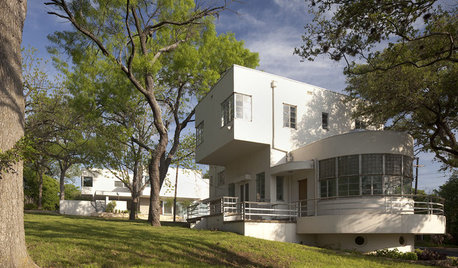

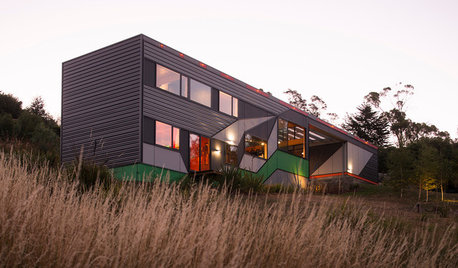


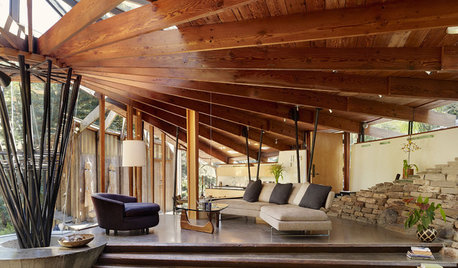
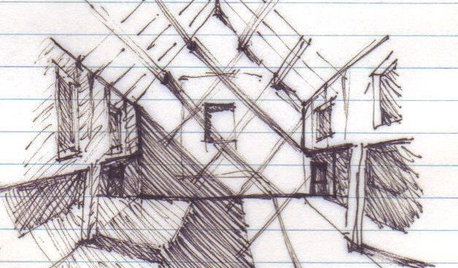
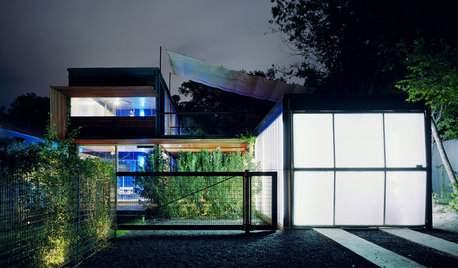










GreenDesigns